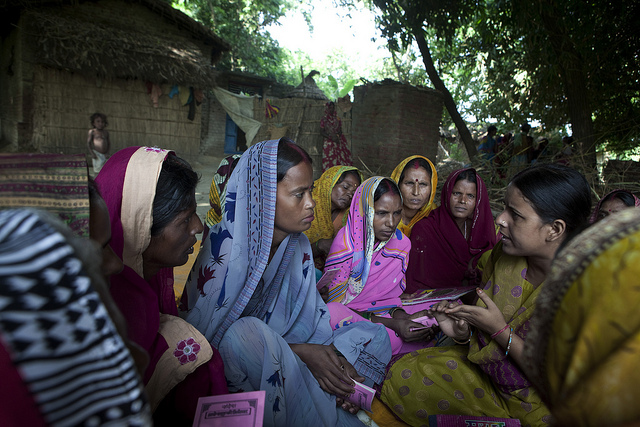There are many debates within the monitoring and evaluation field about evidence. When is it enough and what type do we need? Is it grounded and context appropriate? What can we learn from it – and how do we share it? This last question is important because before we start to design a new program, or piece of research, we need to ascertain what is currently known so we can learn and build from it.
Having recently joined the Freedom Fund, part of my role is to understand what evidence is out there as well as to share that knowledge in order to improve our work. But how best to keep up to date with the most recent articles emerging in the sector? And how best to foster debate and discussion on some of the most important issues?
A founding principle of the Freedom Fund is to learn and share knowledge with other anti-slavery organisations. Therefore, to support these efforts, we have today launched the Slavery Research Bulletin. Designed to provide busy members of the anti-slavery community with a succinct monthly update on new and thought-provoking research, the plan is for the monthly bulletin to be a mixture of new research, methods papers and promising practices spanning both academic and grey literature.
In this first edition, we have highlighted work published in the last six months across a range of topics including the Palermo Protocol, changes in anti-trafficking efforts, developments in researching hidden populations, delaying marriage and the migrant journey. Work from the London School of Hygiene and Tropical Medicine also highlighted the need for further investment and research in mental health for survivors of trafficking for exploitation.
As our bulletin was sent out, an article published in JAMA Pediatrics from the same team presents the largest survey on the health of child and adolescent survivors of human trafficking. The work examines how exposure to violence, exploitation and abuse affect the mental health and suicidal behaviour of trafficked children.
The Freedom Fund, together with the Helen Bamber Foundation, will shortly launch their literature review on mental trauma of those in modern slavery together with a review of current treatments. Recommendations will focus on next steps – but of even greater value will be the resulting discussion and debate generated into what treatments are most appropriate, and how we might usefully and successfully evaluate such interventions.
Clear presentation of research is beneficial and the Population Council’s report neatly summarises some results from their evaluation to delay marriage. The practices are promising and seeing intervention costs laid out clearly is helpful. However, the cost variability between Ethiopia and Tanzania does also speak to some of the inherent challenges in M&E in terms of evaluating and comparing programmes within different contexts.
In putting together this first edition, it is clear that there is considerable high quality research taking place that can inform our work and spur further discussion. We hope that the Slavery Research Bulletin will help to bring this research to a wider audience and be a useful addition to the anti-slavery community.
We welcome your thoughts and feedback for future editions. Please contact me at [email protected].



